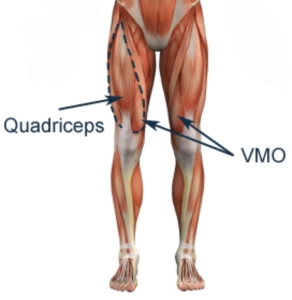Online Fitness Training & Movement Rehab by a Qualified Physiotherapist & Personal Trainer.
REGRESS TO PROGRESS
To quote Pat Flynn from Chronicles of Strength (love this simple, yet effective way of summing up this whole blog post in 3 small symbols)...
"- = +" :-)
The golden rule in movement: REGRESS TO PROGRESS!...
For the trainers out there: please don’t expect your client to “get” movement by handing them a weight they’re not ready for and just expecting them to move correctly by shouting out a few cues to them…it ain’t gonna happen!
The only thing that happens is they learn bad movement and possibly land up with an injury.
For the fitness enthusiasts out there: you have to break down movement and work on the weaknesses within a movement pattern in order to progress a movement. Don't just think that practising single leg squats or pistols is going to get you better at doing pistols...it's only gonna get you injured. There is a reason why you struggle with certain movements, you need to find that reason and work on it! Maybe your ankles aren't mobile enough; maybe your hips are unstable; maybe you lack good sequencing in your inner unit (core); maybe you have flexility issues in either certain muscles or joints; maybe fear is holding you back; maybe all of the above! :-o There are a number of possible, likely reasons but you need to find yours.
Just because your mate did loads of hamstring flexibility and went from finding pistols difficult to being able to achieve them, doesn't mean that's going to work for you. We're all individuals here and you need to treat yourself as one. And holding a kettlebell out in front of you is not the answer, yeah, you might feel more stable but maybe, just maybe that is because you have core issues and the kettlebell is forcing your body to react to the weight by engaging your core before you descend, but what happens when you try again without the kettlebell?
I'd suggest ditching the kettlebell and stepping away from the pistol for a while to work on core sequencing...once you've made progression there, find ways to progress. I'm just using pistols as an example, this applies to anything in life. And it takes time, you're not gonna fix things overnight.
So please, think before you cause yourself harm. If I gave you one Golden Rule of advice it would be CHECK YOUR BREATHING! This is highly important for any form of stability work. If your'e unsure, my stability exercise page has a great description of how to check your breathing and how to correct it, I have video links on Youtube to help as well & my facebook page has a link to an awesome interview with Dr Perry Nickleston & Julie Wiebe on the pelvic floor & breathing...Check it out! Core function begins with breathing!
I repeat: Regress to progress…Perfection before load…Get assessed if you're unsure...
PREVIOUS INJURY IS A BIG PLAYER IN THE MOVEMENT GAME!
One of my clients, who is a keen diver, tells me whenever he swims or dives he usually always gets pretty bad cramping in his right hamstring towards the end of the swim/dive and wandered if there was anything he could do for it.
After a couple of minutes of assessment I had discovered he had a hamstring to quad dysfunction & his hamstrings were compensating for his medial quadricep (Vastus Medialis) predominantly. His VMO muscle (Oblique fibres of the Vastus Medialis that form the teardrop muscle at the knee) was particularly weak and had some noticeable wasting. His quadriceps in general on the Right side were slightly wasted in comparison to the Left.
He then precedes to tell me when he was 15 years old (+-50 years ago) he tore his medial quad & never got treatment on it, there was a noticeable dip in the muscle bulk as well which had been there ever since (a give away for a full tear or a possible partial tear). EUREKA!
So our findings related back to an ancient injury from decades ago that has manifested as dysfunction in his right side and causing him problems at this time. He admitted never having issues after the injury healed and kept playing footy for years.
Moral of the story, even though his injury was decades old and he'd adapted to it in a way that enabled him to get away without too much trouble for many years, it eventually comes back to bite you in the ass! Some cases being worse than others but don't ride on dysfunction for too long as it will always win! Post injury compensations stay with you for life, unless of course, you seek help to change them!




